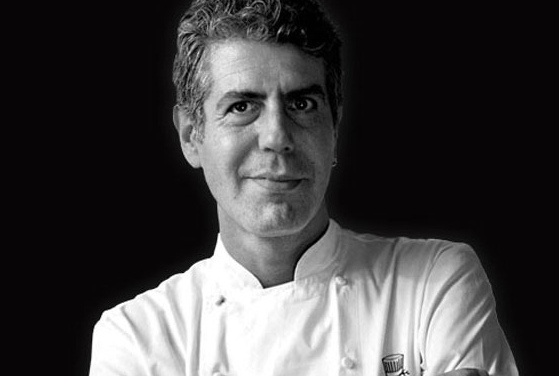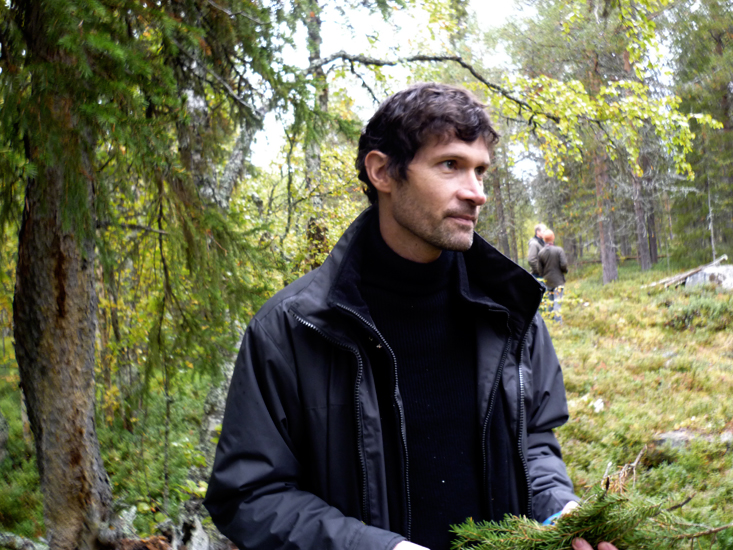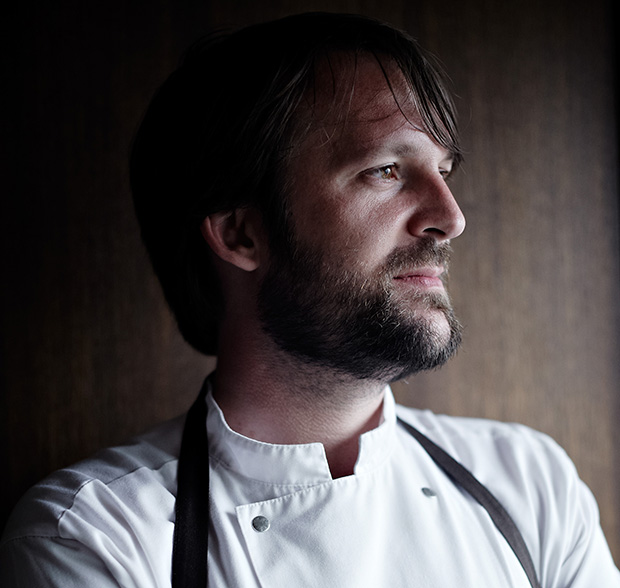
Daniel Patterson remembers Anthony Bourdain
Patterson, Ferran Adrià and René Redzepi pay tribute to the US writer and TV presenter who died a few days ago
Daniel Patterson can remember the moment he came across Anthony Bourdain’s writing for the first time. As Patterson recalls in a New York Times tribute, it came towards the end of a 1999 dinner party, when a friend showed Patterson Bourdain’s first article, Don’t Eat Before Reading This, which had just been published in the New Yorker. “ It was electric,” Patterson recalls.
“In his writing, he ripped open the glossy facade of the celebrity chef, exposing the often unsavory realities of the trade that lurked beneath,” the Coi chef and Phaidon author wrote in tribute.
"As much as he humanized the people working in kitchens, he also made their lives seem somehow enviable. His early writing unintentionally glorified the culture of toxic masculinity that existed in kitchens then, and that in many ways still exists.

"As a teenager I worked alongside the macho, swaggering line cooks that he described so vividly. I know that underneath that veneer of excess and confidence we were all damaged, the cracks beneath the surface leaking the sadness and loneliness that probably drew us to cooking in the first place. Kitchens were places where we could find others who shared our experiences. Where we could hide. Mr. Bourdain’s writing was so good that it was easy not to dwell on the abuses and mental health issues implicit in his stories, but they were always there.
"One of Mr. Bourdain’s strengths was his restlessness and his openness to new ideas, even when that meant admitting that his old ideas were wrong. In recent months he spoke loudly and frequently about the gender inequities and discrimination that still exist in professional kitchens. He criticized chefs accused of sexual harassment and took responsibility for his own words. In December he wrote, 'To the extent which my work in Kitchen Confidential celebrated or prolonged a culture that allowed the kind of grotesque behaviors we’re hearing about all too frequently is something I think about daily, with real remorse.'
"He was a celebrity who seemed like one of us, which is increasingly rare in our era of plasticized heroes. His popularity was always rooted in his relatability, his humanness and imperfections. Mr. Bourdain celebrated life for what it is, a wondrous but difficult and often lonely journey: 'As you move through this life and this world you change things slightly, you leave marks behind, however small. And in return, life - and travel - leaves marks on you. Most of the time, those marks - on your body or on your heart - are beautiful. Often, though, they hurt.' For cooks all over the world, this one hurts."
Other Phaidon chefs and authors have also paid tribiute to Bourdain and his life; “Your storytelling and curiosity brought us all around the world and even to our home city,” said Matt Abergel of Yardbird, Hong Kong. “We will remain inspired by your unapologetic attitude and drive.”
Even chefs whom Bourdain didn't initially appreciate, came to love him. "“He said we were shit,” the elBulli chef Ferran Adrià told TIME. “But then, a few years later, when we actually met, the first thing he said to me was ‘I owe you an apology. And he went on to become a big supporter of what we were doing. We had a ton of affection for each other.”
Brazilian chef Alex Atala admired Bourdain's curiosity. “He wanted to taste everything,” Atala said. “He was such a curious guy;" and later posted the comment "Rest in Power" alongside an image of Bourdain.
Others lamented Bourdain's suicide. “He used to say he was so lucky because he could go anywhere he wanted. Never dreamed he would want to go there...” said our The Taste of America author Colman Andrews.

“Another incredible loss to suicide,” concurred Noma’s René Redzepi. “Heart broken, sad, in disbelief.”